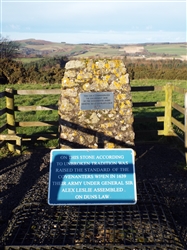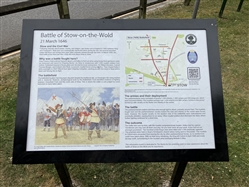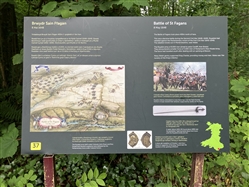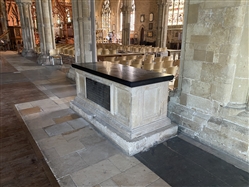Monck, George
Title:
Duke
Military Rank:
General
First Name:
George
Last Name:
Monck
Memorial Type:
Memorial - Funerary
Does the monument still exist?
No
Installation Date:
--
Inscription:
--
Allegiance:
Royalist
Condition:
Very Good
Condition Description:
--
Memorial Notes:
At his coronation on 2 February 1626, Charles I wore white which many said was unlucky. During the Civil War, Parliamentarian soldiers camped in the abbey and "broke down the rails before the Table and burnt them in the very place in the heat of July but wretchedly profaned the very Table itself by setting about it with their tobacco and all before them". A number of prominent Parliamentarians were buried in the abbey and were exhumed in 1661 following the Restoration and buried in pit in the churchyard of St. Margaret's. Those exhumed from St. John the Baptist’s Chapel were John Pym (d. 1643), William Strode (d. 1645) and Edward Popham (d. 1651). Those exhumed from Henry VII’s Chapel included Elizabeth and Jane Cromwell (Oliver Cromwell’s mother and sister respectively), Richard Deane (k. 1653), Humphrey Mackworth (d. 1654), Sir William Constable, (d. 1655), Robert Blake, (d. 1657), and Denis Bond (d. 1658). A memorial to their memory lies beneath a carpet in the RAF Chapel. The bodies of Bradshaw, Cromwell and Ireton were also disinterred, and a small slab by the entrance to the RAF Chapel makes “The Burial Place of Oliver Cromwell, 1658-1661”. The grave, in St. John the Baptist’s Chapel, of the Earl of Essex, “the late Lord General of the Forces Raised by the Parliament of England” (d. 1646) was left undisturbed at the Restoration, as were those of (in Henry VII’s Chapel) of Major Major-General Charles Worsley (d. 1656) and Cromwell’s favourite daughter, Elizabeth (d. 1658). Amongst the tombs and burials within the Abbey are Monck (d. 1670), Edward Montagu, 1st Earl of Sandwich, (d. 1672), Edward Hyde, Duke of Clarendon (d. 1674), Prince Rupert (d. 1682), Charles II (d. 1685), James Butler, 1st Duke of Ormonde (d. 1688), and John Dryden (d. 1700).
Memorial Address:
Westminster Abbey
County:
Westminster
Country:
England
Geoloation:
TQ 2990 7948





